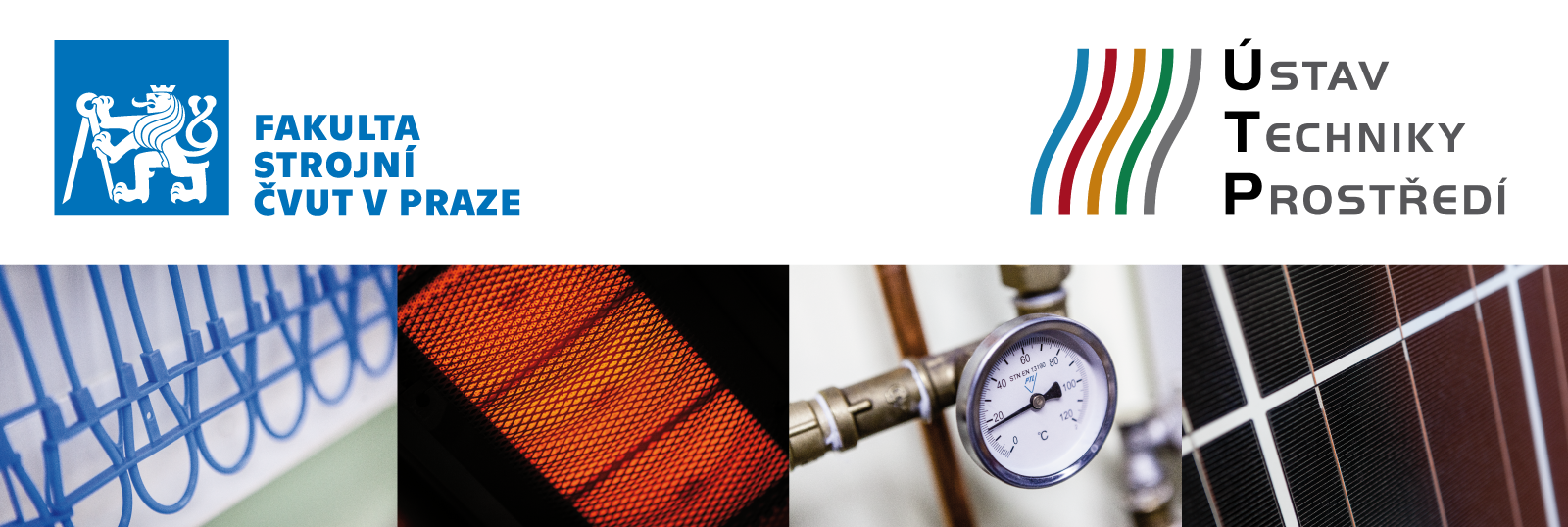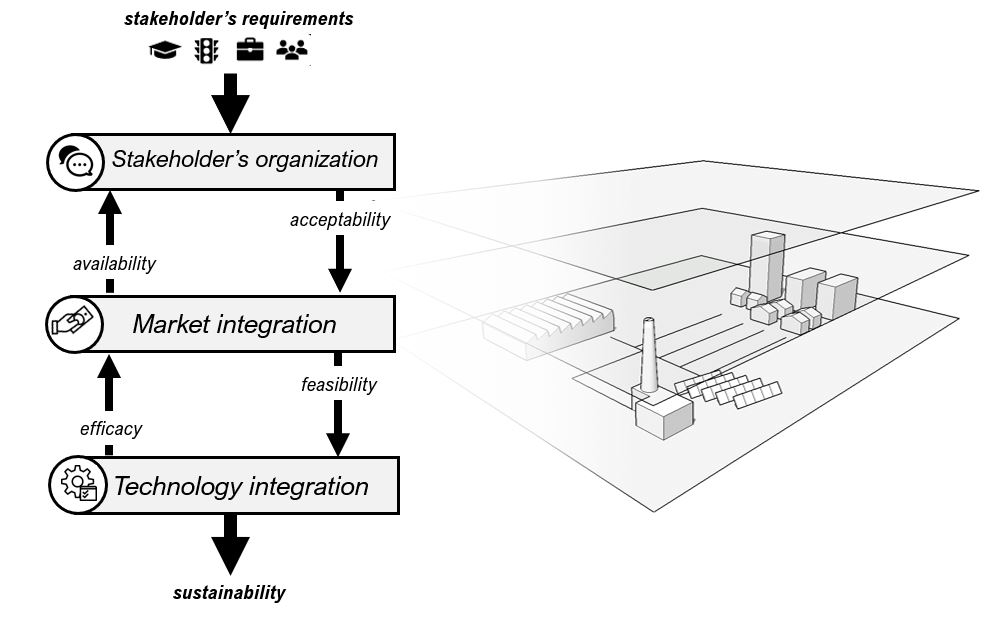PostDoc on Smart Building Solutions for a Decarbonized Integrated Energy System - 2nd opening
Do you want meaningful job and participate at development of building solutions leading to cross-sectoral decarbonization using energy simulation tools?
| Position | Post-doctoral researcher |
| Department | Environmental Engineering, FME, CTU in Prague |
| Application deadline | 11/9/2022 - 23:00 CET |
| Expected start date | 1/1/2023 |
| Expected contract duration | 2 years |
| Full-time equivalent | 1 |
| Starting salary (monthly, brutto) | 62 000 CZK ~ 2510 Eur |
| Scientific Mentor | Prof. Dr. Ir. Jan L. M. Hensen LinkedIn |
| Research team leader | Ing. Vojtech Zavrel, Ph.D LinkedIn |
| Research topic name | Research and development of smart building solutions for a decarbonized integrated energy system |
| Official job offer | https://euraxess.ec.europa.eu/jobs/819879 |
Job description
Computational modeling and simulation is our main research methodology for
analyzing and optimizing the energy system integration potential of the built
environment within the overall heat and electricity infrastructure. We plan to
expand existing building energy simulation software (e.g. TRNSYS, Modelica /
Dymola, etc.) with possible extensions via generic simulation tools (e.g.
Matlab, Python).
Our expectations from the person at postdoc position would be:
• to be fully involved in the described research within the existing research team
• to be actively involved in research proposal development and acquisition
activities
• to lead the publication activities of research outcomes in relevant
impacted journals
• to collaborate with one of the IEA EBC Annex projects and in this context,
to represent our department and CTU in Prague in international research
communities
About the topic
Energy system integration – the coordinated planning and operation of the energy system ‘as a whole’, across multiple energy carriers, infrastructures, and consumption sectors – is considered as the pathway towards an effective, affordable and deep decarbonisation of the European economy (EC document COM/2020/299 “Powering a climate-neutral economy: An EU Strategy for Energy System Integration”). Buildings are important in this context as they offer ample room to increase energy efficiency and instead of being passive consumers they should take an active role in energy supply and storage.Mentor: Prof. Dr. Ir. Jan Hensen
The Environmental Engineering Department of the CTU in Prague has a long track record in research and development of building energy systems. The focus was on indoor environment in terms of occupant thermal comfort, indoor air quality and the energy performance of heating, ventilation and air-conditioning systems. However, as the role of buildings will be extended in the integrated energy concept, the focus moves to smart solutions for optimal integration of buildings in modern district energy (both thermal and electrical) systems.
The system integration is complex and challenging research topic. Within this frame, buildings and they interactions with surrounding district systems will be studied at three levels: technological, economical and organization as depicted in figure below. The ultimate goal is to arrive to sustainable and integrated energy system that satisfices all stakeholder's requirements.
The general research topic will be smart building energy systems in relation to indoor environmental quality as well as to energy performance supporting the upcoming system integration strategies. The new postdoc will support our goal to establish a group providing research and expertise in arising topics associated with the activities of the International Energy Agency’s Energy in Buildings and Communities (IEA EBC) program, such as:
• fuel-shift impact on building energy systems (power-to-heat strategies),
• building energy systems as part of energy communities (communities and prosumers support),
• building-to-grid interaction (related to both thermal and electrical energy)
• building flexibility aggregation
• indoor environment in the context of energy system integration strategies
• environmental impact of energy system integration strategies
About mentor
Prof. Dr. Ir. Jan L. M. Hensen
My area of expertise is computational modeling and simulation for optimizing design and operation of high-performance buildings in terms of (renewable) energy use and indoor environmental quality. The focus is on widening the scope of building simulation to allow for multi-scale and multi-physics problems, and for incorporating optimization under uncertainty approaches. This is directly related to societal challenges such as energy transition and climate adaptation of buildings and neighbourhoods.
Related publications and projects
Cooperating with IAE-EBC Annex 82 Energy Flexible Buildings Towards Resilient Low Carbon Energy Systems https://annex82.iea-ebc.org/ (2022-2025)
HORIZON_EU: A Global as well as Local Flexibility Marketplace to Demonstrate Grid Balancing Mechanisms through Crosssectoral Interconnected and Integrated Energy Ecosystems enabling Automatic Flexibility Trading (2023 - 2026, Accepted, Grant agreement in preparation)
TACR: TK04010294 Methodology for smart thermal grid planning: exemplary scenarios and coordination tools for Power2Heat system integration at the municipal level (2022-2024)
TACR: TK04020326 Advanced control of heat pump according to quality of energy mix (2022-2024)
TACR: TK02010164 Development of tools for optimal building demand response to smart grid requirements (2019-2022)
How to apply
To apply for the CTU Global Postdoc Fellowship you need the following documents in English:
- CV, including list of publications (max. 4 pages). At least two impacted
journal publications are expected. Accepted papers pending publication are acceptable if a proof of acceptance is provided. - Motivation letter (max. 2 pages).
- PhD certificate (copy)
You may attach other optional documents supporting your application such as
recommendation letters etc.
The application documents must reach CTU by 11/9/2022 23:00 CET.
Applications should be sent to:
E-mail: research@fs.cvut.cz
preferably with cc vojtech.zavrel@fs.cvut.cz and Joannes.Hensen@fs.cvut.cz
Selection process
Applications will be assessed by a committee, based on documents sent by applicants and an (online) interview.
The (online) interview will be organized during October.
The final decision of the committee will be communicated to applicants by October 31, 2022.
Fellows are expected to start their job at CTU in Prague from January 2023.
Do you recognize yourself in this profile and would you like know more?
Please contact Ing. Vojtěch Zavřel, PhD. | vojtech.zavrel@fs.cvut.cz


